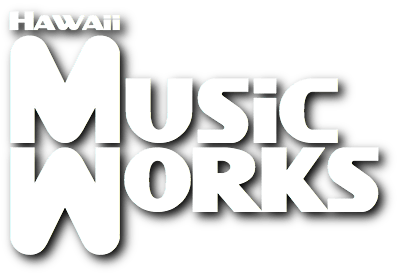FINDING THE RIGHT INSTRUMENT FOR YOUR CHILD: A MOM'S GUIDE TO KEYBOARD, GUITAR, DRUMS & MORE
Hawaii MusicWorks
Choosing the right instrument for your child can feel overwhelming—especially if they’re excited about music but aren’t sure where to start. As a mom who’s been through this process and as an administrator at a music school, I’ve seen how the right instrument can make all the difference in a child’s musical journey.
The best choice depends on their personality, learning style, and even family dynamics (because let’s be honest, a drum set in a small apartment might not be ideal!). Here’s what to consider when helping your child find their perfect match.
If your child is excited about music but unsure where to start, we can help! Our teachers can provide an introductory session where your child gets hands-on experience with multiple instruments to see what feels right. Sometimes, just a little trial time can help them make the best choice.
1. Consider Their Personality & Recommended Starting Ages
Each instrument has a unique “vibe,” and some naturally suit different personalities. It’s also important to consider age appropriateness:- Keyboard (Starting at Age 4+) – Great for kids who enjoy structure and patterns. It’s an excellent first instrument because it visually lays out music theory concepts and doesn’t require fine motor skills or finger strength like stringed instruments. Plus, you don’t need to invest in an acoustic piano—portable keyboards are affordable, take up little space, and often have headphone options for quiet practice.
- Guitar (Starting at Age 7+) – Perfect for independent and creative kids who love experimenting with sound. Since guitars require finger strength to press down on the strings, waiting until around age 7 helps avoid frustration.
- Drums (Starting at Age 7+) – A great fit for kids who like movement and rhythm. While younger kids love banging on things, formal drum lessons require coordination and focus, which develops around age 7.
- Voice (Starting at Age 7+) – If your child sings all day, why not develop that natural talent? Formal lessons start around age 7 when kids can focus and understand breath control.
- Bass (Starting at Age 8+) – Ideal for team players—bassists provide the foundation in a band and tend to be the steady, supportive types. Like guitar, bass requires finger strength, so waiting until at least age 8 is best.
- Visual learners do well with keyboard, where notes and patterns are laid out clearly.
- Kinesthetic learners thrive with drums, guitar, or bass.
- Auditory learners may love voice lessons since they rely on listening and pitch matching.
- Do you have space? A full-size acoustic piano or acoustic drum set requires room. If space is an issue, consider options like portable keyboards, or drum pads.
- How much noise can you handle? Drums are loud, but electronic kits with headphones can help.
- Are you okay with carrying an instrument? Guitars are portable; pianos… not so much!
If your child is excited about music but unsure where to start, we can help! Our teachers can provide an introductory session where your child gets hands-on experience with multiple instruments to see what feels right. Sometimes, just a little trial time can help them make the best choice.
5. Support Their Choice (Even If It’s Unexpected!)
Maybe you pictured your child playing classical keyboard, but they’re drawn to electric guitar. That’s okay! Supporting their choice increases their motivation to stick with it.The right instrument should inspire your child—not feel like a chore. With a little guidance, you can help them find their musical passion!
